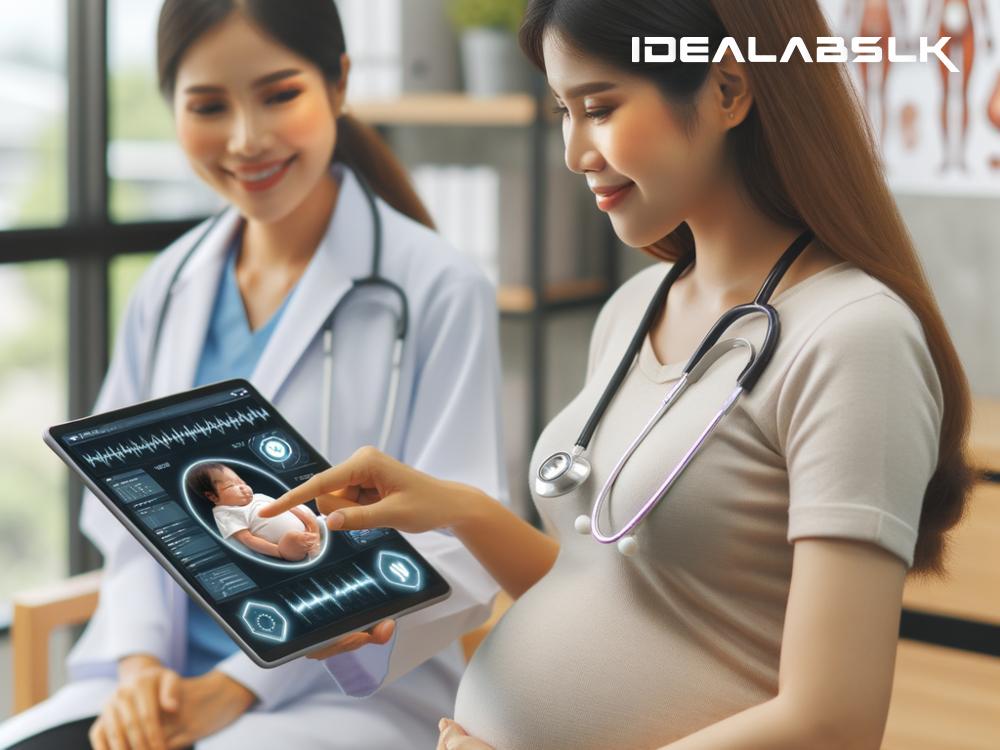How Digital Health Technology is Improving Maternal and Child Care: Innovations for Better Outcomes
In today’s fast-paced world, technology is revolutionizing every aspect of our lives, and healthcare is no exception. The emergence of digital health technology is paving the way for significant improvements in various healthcare sectors, especially in maternal and child care. These advancements are ensuring that mothers and their children have access to better healthcare services, leading to improved outcomes. Let's dive into how digital health innovations are making a difference.
1. Telehealth: Bridging the Gap
One of the most significant improvements in healthcare through technology is the rise of telehealth. For expecting mothers and new parents, this means easier access to doctors and specialists without the need to travel, which can be particularly challenging during pregnancy or with newborns. Consultations, follow-ups, and even some diagnostics can be done through video calls or messaging apps, reducing the risk of exposure to illnesses in clinical settings and saving valuable time.
2. Mobile Health Apps: Your Health in Your Hands
A plethora of mobile health apps are available today, offering personalized advice and tracking for both maternal and child care. From apps that help track pregnancy milestones, fetal development, and maternal health, to those that monitor a child's vaccination schedule, growth, and developmental milestones, these tools empower parents with information and reminders, making health management easier and more accessible.
3. Wearable Devices: Keeping an Eye on Vital Signs
Wearable technology has also found its way into maternal and child care. For pregnant women, wearable devices can monitor vital stats such as blood pressure, heart rate, and even fetal movements, transmitting this information directly to their healthcare providers. For children, similar devices can track temperature, heart rate, and sleep patterns, helping parents and pediatricians detect any potential health issues early.
4. Electronic Health Records (EHRs): Keeping Data at Fingertips
Gone are the days of cumbersome paper records. With Electronic Health Records (EHRs), all of a patient’s health information is stored digitally, making it easier for healthcare providers to access and share necessary information. This is particularly beneficial for mothers and children, as it ensures that their health history is seamlessly integrated, aiding in better-coordinated care and avoiding unnecessary repeat tests.
5. Artificial Intelligence (AI) and Machine Learning: Predicting Health Trends
Artificial Intelligence (AI) and machine learning are also transforming maternal and child care by analyzing vast amounts of data to predict health trends and potential complications. For instance, AI-driven algorithms can help predict which pregnant women are at risk of developing conditions like preeclampsia, allowing for earlier intervention. In child care, AI can help in identifying developmental delays or predicting asthma flare-ups, ensuring timely care and treatment.
6. Digital Pharmacies: Medication with a Click
For busy parents, running to the pharmacy can be a chore, especially when juggling the needs of a newborn or a sick child. Digital pharmacies offer a convenient solution, allowing parents to order prescriptions online which are then delivered to their doorstep. This innovation is not only convenient but also reduces the risk of medication errors, as prescriptions are filled digitally, and records are kept streamlined.
7. Online Communities and Support Groups
Lastly, technology is facilitating the creation of online communities and support groups where parents can share experiences, advice, and find emotional support. For many, especially first-time parents, these platforms offer invaluable resources and a sense of community, helping them feel less isolated in their parental journey.
Conclusion
Digital health technology is significantly improving maternal and child care by making healthcare more accessible, personalized, and efficient. From telehealth services and health apps to AI and wearable devices, these innovations are empowering parents and healthcare providers alike, ensuring better health outcomes for mothers and children. As technology continues to evolve, we can expect even more remarkable advancements in the future, making healthcare not just a service, but a well-coordinated ecosystem focused on holistic well-being.
In this journey of technological advancements, it's crucial to ensure that these innovations reach everyone, regardless of their location or economic status. By making digital health technology universally accessible, we can hope for a world where every mother and child has the chance for a healthy start in life. The future of maternal and child care is bright, thanks to the wonders of digital health technology.

